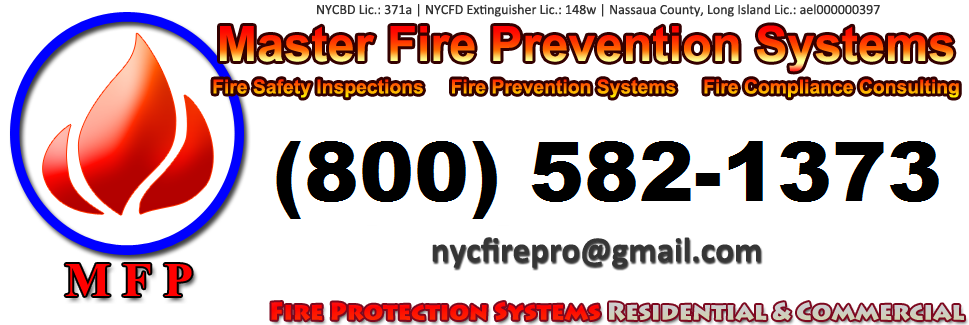New York City Fire Protection Testing
Testing your Fire Protection System in New York City will vary depending on the fire protection system you have installed. Testing can be as simple as making sure a fire or smoke alarm will buzz, or as complex as pressure testing the fire sprinkler lines. Fire Protection Contractors and/or Fire Safety Engineers are able to test your fire protection system and make sure you are complying with all Federal, State, and City Fire Codes, Rules and Regulations and Health and Safety Codes, Rules, and Regulations.
Who Tests my Fire
Protection System
Testing your fire protection system is something you, the fire safety engineer, and/or the fire protection contractor will conduct on a regular basis to ensure the fire protection system will operate and function properly.
What is testing a
Fire Protection System
Testing your fire protection system is a series of checks, both visual and mechanical that helps ensure that the fire protection system, its parts and components are all working. There are guidelines to testing the fire protection system as can be found in NFPA 25, which is the standard for testing your fire protection system.
Testing the fire protection system will depend on what type of fire protection system is installed into your commercial building, home residence, structure, or facility. Fire protection systems are built exclusively for the building they were designed for, as each building has different fire hazards, floor plans, building design. Depending on the components that your fire protection system has testing will vary per each application. We encourage you to test the fire protection system regularly such as weekly, monthly, quarterly, semi-annual, yearly and every 5 years.
Where Fire
Protection System Tests Occur
Testing your fire protection system is a series of tests done on each component of the fire protection system. For a standard water based fire protection system testing would occur on the fire sprinklers to ensure proper pressure and no leaks, sprinkler heads to make sure that the heat detector element and sprinkler head are functioning, fire alarms to make sure they are operating correctly and so forth.
When a Fire
Protection System Test Should Occur
You should have your fire protection system tested on a regular basis a schedule should be created by the fire protection company that installed the fire protection system. The fire protection system should be receiving weekly, monthly, semi-annual, annual, and 5 year tests. These tests are completed to make sure all components of the fire sprinkler system are operating correctly.
Why Test a Fire
Protection System
Your fire protection system is designed to accomplish two goals; save lives and possessions. However your fire protection system needs to operate in order to accomplish these goals. Testing your fire protection system on a regular basis helps ensure that in the event of a fire, your fire protection system will warn you of the fire danger giving you time to evacuate, stop the spread of fire and extinguish the fire.
How to Test a
Fire Protection System
You should conduct testing your fire protection system according to the schedule given to you by the fire protection company that installed your fire protection system according to NFPA 25 guidelines. If you do not have a schedule for proper testing of your fire protection system, we encourage you to contact a fire safety engineer and/or a fire protection contractor to establish a set schedule to properly test, inspect and maintain your fire protection system.
 |
|
|---|---|
| New York City Fire Prevention and Safety | Phone: (347) 220-8330 |
| Email: nycfirepro@gmail.com New York City Fire Protection New York City Fire Sprinklers New York City Fire Protection Service |
|
Emergency Fire Protection
Service Available
Install, Service & Repair
|
 |
 |
 |
No comments:
Post a Comment